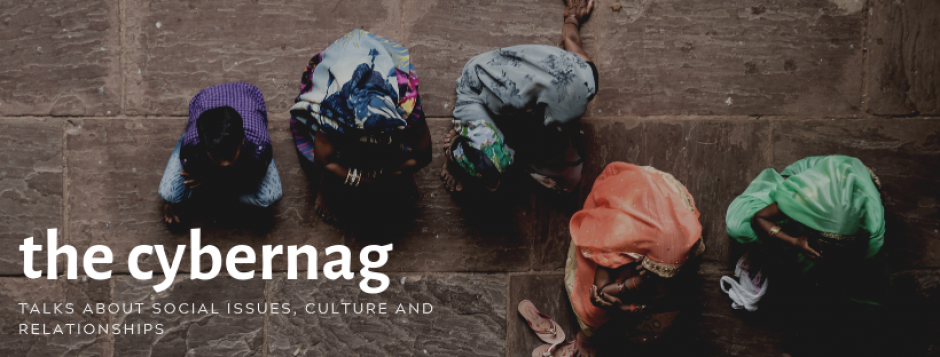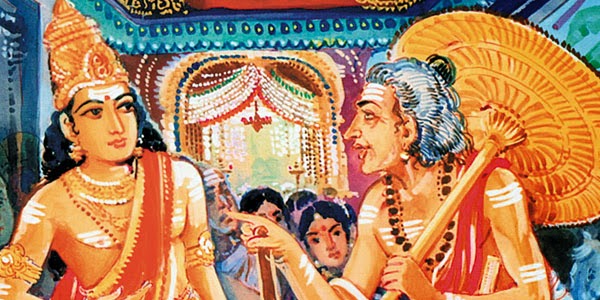While it is often tempting to take credit for a given outcome, especially if it a good one, the truth is that we have no control over the effects of any karma-induced action or reaction. It is an inexorable system of justice, often working over several lifetimes.
The logical question then is, ‘What is the use of praying to reduce its effects, if karma-phal is inevitable?’
While it is true that karma-phal has to be worked out and even Gods and gurus are not above its law, it is also true that complete faith and surrender to the Supreme can mitigate its ill-effects, sometimes to appear as even miraculous.
To begin with, even the fact that one is praying is because of some good karma, since one can only pray when one has the grace of the deity. In one of the verses of Tiruvasagam, the great 9th century Saivite saint Manikkavasagar says:
சிவன் அவன் என்சிந்தையுள் நின்ற அதனால்
அவன் அருளாலே அவன் தாள் வணங்கிச்
சிந்தை மகிழச் சிவ புராணம் தன்னை
முந்தை வினைமுழுதும் ஓய உரைப்பன் யான்.
Loosely translated it means, that he is able to worship Lord Shiva only because He is influencing his thoughts. And by reciting the pleasing Shiva Puranam, he can get all accumulated karma from past lives eradicated by the grace of Shiva.
Coming down from the sublime Tiruvasagam to my plebian explanation, prarthanas/prayers are like appeals to the highest court by a convict for mitigation of a particularly harsh ruling by a lower court, knowing punishment is inevitable.
Our prayers – sincere ones where we accept the responsibility for our karma and ask for help to transcend them — can get divine help in several ways. The intensity of the situation might be reduced; there might be unexpected help to cope with it; reserves of endurance and strength might be discovered to deal with it, and many more unique ways in which we can get divine help.
To give a mundane example, a child suffering from stomach-ache due to indiscriminate eating the previous day, might beg its mother for some treat, knowing she would refuse. But repeated and piteous entreaties might make the mother relent a little and give some treat that would make the child happy while not aggravating the problem. The pain and treatment have to be gone through, but there is some mitigation of the punishment. It is the same with prayers to reduce karmic effects.
During one particularly traumatic period in my life, when things couldn’t have been bleaker (or so it appeared to my suffering mind), there were still such beautiful moments and unexpected sunshine events, that it couldn’t have been due to anything but the grace of the Divine. Those were days when I remember cringing at the kind of paapa karmas I might have done, to have to endure such pain. The remorse was genuine and the seeking of help to overcome the difficulties, sincere. Most of all, I firmly held on to the belief that things would improve. I completely believe that all of these had combined to give me those moments of joy.
Likewise, if the devotee beseeches the Supreme to help him to stay on the dharmic path and not get entangled in worldly matters, the prayer is answered too. It is because of this grace that the Supreme is called the Taduthatkollum Deivam — the Lord who prevents and saves the devotee from Samsara.
The story of the Saivite bhakti saint Sundaramurthi Nayanar illustrates this most amply. Having been sent to the earth to work out his karma for his momentary attraction towards two of Devi Parvati’s attendants, Sundaramurthi, the devoted celestial companion of Shiva om Kailasa, prays for reprieve asking that the Lord stop him the moment he was about to do some foolish thing on earth. Shiva did, and how! Read the fascinating story of how Sundaramurthi became Sundaramurthi Nayanar here.
Most of us would have heard the story of Ajamila from the Bhagavatam. This pious Brahmana lost all the merits he had accumulated due to his desire for a prostitute, for whom he abandoned his wife and children and his dharma. So burdened by worldly desires and attachments was he, that even on his deathbed, he couldn’t remember to chant God’s name. However, he called out to his youngest son whose name was Narayana. That was all that was needed to get him moksha. Imagine, a lifetime of paapa karmas nullified by chanting the name of Narayana just once! What can’t a devotee with shraddha achieve? Read Ajamila’s story here.

So, it is not true that prayers do not reduce one’s sanchita paapa. According to Sri Ramakrishna Paramahamsa, “Spiritual practices such as japa, meditation, puja, pilgrimage, etc., can lessen the effect of bad karma. Prayer is always beneficial”.
That is why prayer is given so much importance as a form of worship in all religions. It holds an especially unique place in Hindu dharma as prarthana is not a rigid, timebound activity that has to be done to stave off the wrath of God. Though rituals and puja routines are prescribed in the Vedas, the choice of the method of worship is entirely up to the individual. The only unwavering ingredient should be devotion, faith and patience to wait for the grace of the Supreme. Fortunately, it is comparatively easier in Kaliyuga to get the grace of the Supreme. For instance, in Satyuga, abstract meditation, in Tretayuga, yagnas, and in Dwapara yuga, adoration were the requisites for moksha. All we need to do in Kaliyuga is do namasankeertana!
The first prayers to umachi (a child’s word in Tamil for God) that is taught to children in our homes is to ask for buddhi. ‘Umachi, nalla buddhi kudu’ (God give me good buddhi) is how small children pray with folded hands in our homes. The idea is to ask for sadbuddhi. But given the emphasis on education and a good career in most middleclass families, this can also be taken as ‘God give me knowledge/intelligence’. It perhaps was to instil the sense of right and wrong in a child, and at a mundane level, to seek divine help stay out of getting into trouble for any misdemeanour!
I remember one child in the extended family praying to God to grant sadbuddhi to everyone except himself, listing his parents, sisters, brothers, grandparents and sundry uncles and aunts in his prayer! Clever kid that! As the kids grow, they are taught to pray for strength if they are afraid of anything, ‘Swami Bhagavane, kapathu!’ (Hey Bhagwan, protect me!).
Prayers or prarthana should be a pure form of bhakti. It is important though, that the prayers should be the result of devotion and belief that God will take care of us to the extent we deserve, under the karmic cycle. We are not Ajamila whose store of punya was so much that despite his paapa karma, he could attain moksha by chanting the name of Narayana just once on his deathbed. Shraddha aur Saburi (Devotion and patience) were the mantras of Saibaba of Shirdi. The karmic cycle is so perfect that things are decided aeons ahead of what we can even imagine. Everything happens in good time, and we can’t hasten the process due our impatience.
As elders say, prayers never go unanswered. Only, they are not always answered instantly or in the way we want them to be answered. It is best too, not to ask for outcomes which we desire, scarcely knowing if they are the right ones which are suitable for us.
Rumi understood this perfectly. According to him, “Many are our wishes and prayers that, beyond our ability to see, will only bring us loss or death, which God Almighty turns a deaf ear to, simply out of His benevolence.”
In conclusion, it is a good idea to be aware of every joy and suffering as the consequence of our own karma, both past and current. While it might not be possible for us to know the outcome of our sanchita karma (accumulated karma), it is best to work out our karmas in this birth. We can consciously try to modify our present karma to avoid creating paapa karma to add to the burden we will be carrying to our next birth. The only way to do this is to pray for guidance and grace of the Supreme.
Images: homepage: https://www.wordzz.com/ , Ajamila: http://www.bhagavatam-katha.com/ , Sundaramurthi Nayanar: https://www.dharisanam.com/ woman praying: https://www.learnreligions.com/









Profound…
Somehow it made me recall Kailasam’s play on Eklavya (‘Fulfilment’) on which I’d written a little piece ages ago…for Indian Express. And taking the liberty of posting a link: here it is!
https://indianexpress.com/article/news-archive/stark-epic-truths/
Strength to thee
LikeLiked by 1 person
Ah Mani, thanks for the link. I had read it the same day but somehow forgot to come back and reply your comment. Sorry about that. That version of the story of Ekalavya is different from the ones I have read. I couldn’t help notice that it makes for fodder for the ‘Hindutva’ bashing crowds, what with Krishna stabbing Ekalavya and going in search of his mother. RaGa demonstrated it, remember?
LikeLike
Thank you so much for this post, Zephyr! Somehow I really needed to read this.
“It is best too, not to ask for outcomes which we desire, scarcely knowing if they are the right ones which are suitable for us” – I think we know this in our hearts but still so tempting to pray for a specific outcome, isn’t it?
LikeLiked by 1 person
You know Manju, sometimes I feel like giving up blogging, but then when I see some comment like this, I am motivated afresh to pen some more. Thank you. And yes, we know everything about karma, the futility of asking for specific outcomes (not necessarily material), and yet we continue doing it. How have you been?
LikeLike